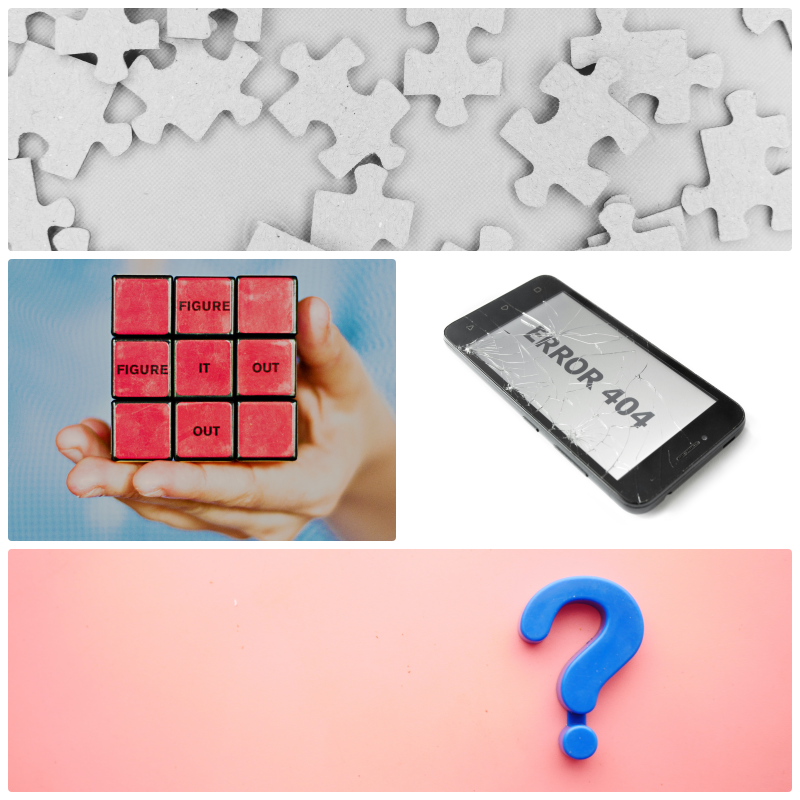Solving the Impossible
From punctuality to penalties, the British have certain expectations when it comes to Germany. It doesn’t necessarily matter if they’re accurate assumptions, the people of the UK care little for honest depictions - what seems more important is that every nation on earth adheres to a set formula devised and promulgated on their tiny island. Long and complicated words are also high on the list of German things British people expect, especially those words that comprehensively describe some abstract concept that English would need a sentence to explain. We love Schadenfreude, Doppelgänger, and Zeitgeist, so much so that we just took them and incorporated them into our own dictionaries, which given the proclivity of the British for stealing things and refusing to return them, is fairly normal state of affairs in old Blighty.
This love of all-inclusive German words leads many British people to take to social media and demand Germany offer up more sacrificial pieces of its language, often asking “Is there a German word for…” before listing some incredibly niche concept that English would have trouble describing. Luckily, or possibly unluckily, German usually has something to offer, which is why I always get a laugh from British folks when I tell them about Backpfeifengesicht (a punchable face). However, Germany doesn’t always cover itself in such glory, in fact, sometimes they need a little help from the British.
Anyone who’s lived here for long enough will know how many Germans baulk at the invasive species known as Denglisch, moreover, every year around autumn the country debates the merits of the Jugendwort des Jahres (Young Person's Word of the Year) which invariably is an English loan word. This is why, if you listen very carefully to young Germans speaking, you may hear them say “goofy” (2023 winner), “smash” (2022 winner), or “cringe” (2021 winner). Germany isn’t a stranger to new English words then, but perhaps I could take it upon myself to offer a new word, one that is particularly useful this year: Catch-22.
Ok, I admit, it’s probably more a phrase, but hear me out before you start penning those complaint emails. Catch-22 is defined as “an impossible situation where you are prevented from doing one thing until you have done another thing that you cannot do until you have done the first thing”. To put it more simply, it is a paradoxical situation which has no escape due to contradictory rules and limitations. German does have a word that comes close to catch-22, Zwickmühle, but it’s often used to describe a general dilemma, which may be difficult to navigate, but not necessarily an impossible situation. There’s also “in der Klemme stecken” which can be translated as “stuck in a bind” or a “tricky situation”, however, this is less than succinct. What we have then is a reversal of roles, where English actually possesses a term that refers to a complex concept which German doesn’t have a suitable word for. Mind you, we shouldn’t be too surprised, German has influenced English after all, it’s just that English doesn’t always lean heavily on the more Teutonic aspects of its language.
It’s surprising that German doesn't have a variant of “Catch-22”, not because German has a monopoly on concise language, but rather Germany seems to constantly find itself in a variety of self-made catch-22 situations. One such example, which I’ve become intimately acquainted with since having children, is the legal right to childcare. Section 24, clause VIII of the Sozialgesetzbuch (German Social Law) dictates that every German child “is entitled to early childhood support in a day care centre or child day care until they reach the age of three” which should be supplied directly by the state or by a state sponsored provider. Despite this law being on the books since 2013, it’s never worked effectively. The level of provision differs from state to state, as do the reasons why this law has never functioned in the way it was intended. Either there are not enough day care centres, or not enough day care staff, but in both cases the result tends to be the same: every year, hundreds of thousands of children are left without a place at preschool. Despite every politician promising to fix the issue, either by building more Kindergartens or employing more staff, the problems still remain. The reason for this ridiculous situation is that despite all the assurances, politicians either can’t find the money to build more Kindergartens or they refuse to pay a fair wage to attract a sufficient number of day care workers.
Connected to the issues surrounding daycare places is the ever decreasing population of Germany. It’s believed that Germany loses roughly 150,000 people of working age per year, meaning we’re effectively running out of workers. With birth rates through the floor, it’s argued that the country needs around 400,000 migrants to come to Germany in order to make up for the shortfall. However, as any migrant will tell, Germany isn’t wholly welcoming to foreigners. This isn’t always to do with everyday racism and xenophobia, which does play a part in creating an unwelcoming atmosphere, but it also has to do with structural and bureaucratic issues across the country. Dealing with the German government, from registering residence to paying taxes, can be a frustrating and frankly debilitating experience. Moreover, the slow moving and frequently confrontational bureaucracy is hampered by a lack of modern technology, which results in many things having to be done on-site, and on paper. There’s also the issue of 732,973 job vacancies across the country, many of which are in local government offices. These positions could be filled by skilled migrants, but given the situation, this is unlikely to happen.
Ultimately, most instances of German catch-22 situations come down to state investment, but here we find possibly the most egregious example: the Schuldenbremse or Debt brake. While many countries implemented austerity policies after the financial crash of 2007, Germany may be the only country that wrote austerity into its constitution, and in so doing tied the hands of all future governments from increasing the national debt. What the Schuldenbremse does in practice is put strict limits on government loans and the amount which the nation can borrow to reinvest. This came to the fore recently when the current coalition government attempted to shift money from an emergency pandemic recovery budget that was no longer needed, to a different budget that would pay for a variety of much needed climate protecting measures. When this plan was taken to the Constitutional Court in Karlsruhe, they struck it down, as in the eyes of the court, this was basically the same as taking out a government loan, which the Schuldenbremse dictates must be spent within the year it was taken out. The result is that the 2024 German budget is in tatters, with a €60 billion hole where the climate budget used to be.
Practically, this means the Constitutional Court is in the uneasy position of controlling what the elected government can and can’t do with state funds, a situation that feels impressively German. What’s more, despite this detrimental situation, opponents and members of the government point blank refuse to support changes to the constitution which would allow the money to become available and provide much needed investment. Instead, the Bundestag is debating who will suffer cuts to their budget, with benefits and childcare provision seemingly the first on the chopping block. Germany needs to invest in itself, but to do that would mean changing the law, which it also doesn’t seem willing to do, so we remain at an impasse.
With all this going on, perhaps it’s a little churlish of me to suggest Germany adopt another English phrase to add the multitude of others which are used on a daily basis. Yet, what else am I meant to do? If the politicians can’t pull their fingers out to solve Germany's problems, I’m hardly going to be able to solve the unsolvable riddle. What I can do is campaign for “Catch-22” to become common German parlance. It might not solve the impossible, but at least we’ll have a name for what ails us, and in the end, that may at least answer one problem.
Image Credit
Photo by Karla Hernandez on Unsplash
Photo by Towfiqu barbhuiya on Unsplash
Photo by Markus Winkler on Unsplash
Photo by Kostiantyn Li on Unsplash
Photo by Lucas Alexander on Unsplash
Photo by Maksym Kaharlytskyi on Unsplash
Photo by Natalia Y. on Unsplash










